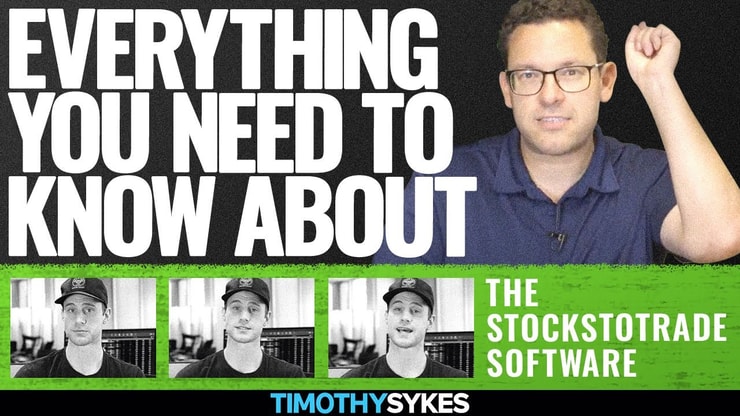*Written by AI, Edited by Humans
TD Ameritrade thinkorswim and Webull are two leading online brokerages that offer a range of trading platforms and investment options. This article provides a comprehensive comparison to help you decide which broker best suits your trading needs, from fees and commissions to trading tools and customer service.
In the world of trading, the right brokerage can make all the difference. Whether you’re into stocks, options, or futures, the platform you choose can either be your greatest asset or your biggest hindrance. Let’s dive into the specifics of TD Ameritrade thinkorswim and Webull to help you make an informed decision.
Both platforms have their merits and drawbacks, and your choice will ultimately depend on your trading style, experience level, and financial goals. So let’s break it down.
Table of Contents
What Is Thinkorswim?
Thinkorswim is a trading platform currently offered by TD Ameritrade, designed for active traders in search of a robust set of tools and indicators. However, it’s worth noting that TD Ameritrade is in the process of merging into Charles Schwab. This merger is expected to be completed in late 2023, at which point thinkorswim will be available to both Schwab and former TD Ameritrade users.
The platform is renowned for its advanced trading tools, comprehensive research features, and user-friendly interface. Whether you’re into charting or fundamental analysis, thinkorswim has got you covered. Given the upcoming merger, users can also expect a seamless transition and potentially even more features as it integrates with Charles Schwab’s offerings.
On a related note, if you’re wondering about the nitty-gritty details like whether you can buy fractional shares on TD Ameritrade, you’re not alone. These specifics can make or break a trading experience. For a closer look at this feature and how it compares to other platforms, here’s a guide that can help.
What Is Webull?
Webull is a commission-free trading platform that caters to the needs of both beginner and experienced traders. Unlike TD Ameritrade’s thinkorswim, Webull offers a more streamlined experience, focusing on ease of use and quick access to market data.
Webull offers a range of investment options, including stocks, ETFs, and cryptocurrencies. It’s a platform that’s gained popularity for its mobile app experience, offering trading on the go without compromising on features. If you’re a trader who values simplicity and quick access to information, Webull might be the right fit for you.
Thinkorswim Vs Webull – Detailed Comparison
When it comes to choosing between thinkorswim and Webull, investors have a lot to consider. Both platforms offer a range of investment products, from stocks and bonds to options trading. However, the differences between the two are significant enough to sway your decision based on your trading style and needs.
Thinkorswim, soon to be part of Charles Schwab, is a go-to place for traders looking for a comprehensive suite of tools. It’s a platform where you can diversify your investments, dabbling in everything from mutual funds to CDs. On the other hand, Webull is more streamlined, focusing on stock trades and a simplified user experience. It’s a platform that has garnered positive reviews for its ease of use, especially for those new to the trading business.
Both platforms offer mobile apps with robust charting tools, but they differ in additional features like loans and credit cards. While thinkorswim provides a more detailed page of research and analysis, Webull offers quick insights that are easily digestible. Your choice between the two will ultimately depend on what you’re looking to get out of your trading experience.
When it comes to charts, StocksToTrade is first on my list. It’s a powerful trading platform that integrates with most major brokers. I helped to design it, which means it has all the trading indicators, news sources, and stock screening capabilities that traders like me look for in a platform.
Grab your 14-day StocksToTrade trial today — it’s only $7!
Trading Tools
When it comes to trading tools, thinkorswim offers a more comprehensive suite. From advanced charting to a plethora of indicators, the platform is a haven for traders who love to get into the nitty-gritty of analysis. Webull, on the other hand, offers a more streamlined set of tools geared towards quick decision-making.
Webull also offers paper trading as a way to practice without risking real money. Check out my guide to Webull paper trading here.
Research Tools
Both platforms offer robust research tools, but thinkorswim takes it a step further with its in-depth analysis and wide range of data. Webull focuses on providing quick, easily digestible information, making it more suitable for traders who prefer a fast-paced environment.
If you’re seeking alternatives, it’s worth comparing thinkorswim with other platforms like TradeStation. Each has its own set of research tools that cater to different trading styles. To get a better understanding of how thinkorswim stacks up against TradeStation, check out this comparison.
More Breaking News
- FMC Plans Debt Reduction and Strategic Growth Initiatives for 2026
- ABP’s Stock Movement Signals Market Concerns Amid Broader Trends
- Huntington Bancshares Misses Q4 Earnings Estimate Amid Turbulent Market Conditions
- Morgan Stanley’s Bold Moves Boost Cipher Mining’s Prospects
Investment Options
Thinkorswim offers a broader range of investment options, including stocks, options, futures, and forex. Webull focuses primarily on stocks, ETFs, and cryptocurrencies. Your choice here will depend on the variety of shares and other assets you’re interested in trading.
Account Types
Both platforms offer a variety of account types, catering to different investment strategies. Thinkorswim provides options for retirement accounts, margin trading, and more, while Webull offers standard brokerage accounts with the option for margin trading.
Commissions, Fees, and Pricing
Thinkorswim has a fee structure that includes commissions for certain types of trades, while Webull offers commission-free trading across the board. However, it’s essential to read the fine print as other fees may apply on both platforms.
Mobile App and Trading Platforms
Webull shines in the mobile app department, offering a seamless trading experience on the go. Thinkorswim, while robust in its desktop version, also provides a competent mobile experience, although it may be overwhelming for beginners due to its range of features.
Cryptocurrency Investing
Webull offers cryptocurrency trading, including popular options like Bitcoin and Ethereum. Thinkorswim does not currently offer direct cryptocurrency trading but does provide options for futures contracts on cryptocurrencies.
Customer Service
Customer service is an area where thinkorswim excels, as its broker offers 24/7 support via phone, email, and live chat. Webull offers customer service, but it’s not as comprehensive as thinkorswim’s, especially for complex trading issues.
Which Broker Should You Choose?
The choice between thinkorswim and Webull boils down to your trading style, the assets you’re interested in, and the level of customer service you require from brokers. Thinkorswim is a better fit for traders who require advanced tools and a wide range of investment options. Webull, on the other hand, is more suitable for those who prefer a simple, straightforward trading experience.
However, keep in mind that thinkorswim will soon be part of Charles Schwab, which could bring about changes in features and offerings.
Trading isn’t rocket science. It’s a skill you build and work on like any other. Trading has changed my life, and I think this way of life should be open to more people…
I’ve built my Trading Challenge to pass on the things I had to learn for myself. It’s the kind of community that I wish I had when I was starting out.
We don’t accept everyone. If you’re up for the challenge — I want to hear from you.
Apply to the Trading Challenge here.
Trading is a battlefield. The more knowledge you have, the better prepared you’ll be.
Which trading platform do you use? Let me know in the comments — I love hearing from my readers!
Frequently Asked Questions
Why is Webull Better Than TD Ameritrade?
Webull offers commission-free trading and a more streamlined mobile app experience, making it a better fit for traders who prioritize low costs and ease of use.
What Is the Downside to Webull?
The downside to Webull is its limited range of investment options compared to thinkorswim, and its customer service is not as comprehensive.
How Do TD Ameritrade Thinkorswim and Webull Handle Account Security?
Both platforms prioritize account security, offering multiple layers of protection, including two-factor authentication and encryption technologies.
It’s worth mentioning that thinkorswim users will soon be part of Charles Schwab, a company also known for its robust security measures, post the completion of the merger in late 2023.
Which Country Can Use Webull?
Webull is available to customers in the U.S. and several other countries, although its offerings may vary by location.
What Training Resources Do Thinkorswim and Webull Offer to Beginners?
Both platforms offer a range of training resources for beginners, including tutorials, guides, and paper trading options to practice without risking real money.





Leave a reply